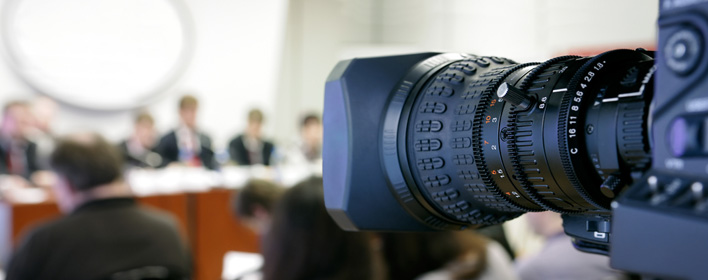Why Are Stenographers Still Needed?

The Importance of Stenographers in Court Reporting In today’s fast-paced digital age, where automated transcription tools and voice recognition software are becoming increasingly prevalent, one might wonder why stenographers are still an essential part of court reporting. While technological advancements have undoubtedly revolutionized many industries, including the legal field, stenography remains an invaluable skill in […]
How Do Court Reporters Transcribe?

Understanding Transcribe Process with CourtScribes Court reporting is a critical component of the legal process, ensuring that every word spoken during legal proceedings is accurately documented. The skills and technology involved in this profession have evolved significantly over the years. This article delves into the meticulous work of court reporters, exploring how they transcribe, the […]
Court Scribes Explains What Those Court Reporters Are Typing On

What’s that thing court reporters are always typing on? This is a question that CourtScribes gets asked all the time. Well, that thing is called a stenotype machine. It’s also used for captioning television broadcasts as well. The stenotype works a bit like a portable word processor. It has a 22-button keyboard in place of the […]
Why Stenography is Necessary in Law

You probably already are well familiar from this site that court stenographers are people trained to type and write in shorthand, which allows them to write as fast as people can speak. It is believed that 180 Words Per Minute is the ‘speed of speech’. Stenographers document and record everything that takes place in the […]
CourtScribes Explains What a Stenographer Is and Does

CourtScribes is the number one company in America when you are looking for a stenographer. A stenographer is one who is trained to type or write in shorthand methods, enabling them to write as quickly as people speak. Stenographers create long-lasting documentation of everything from court cases to medical conversations. This is useful in many […]
What are Those Court Reporters Typing On

What’s that thing court reporters are always typing on? This is a question that CourtScribes gets asked all the time. Well, that thing is called a stenotype machine. It’s also used for captioning television broadcasts as well. The stenotype works a bit like a portable word processor. It has a 22-button keyboard in place of the […]
What Exactly is the Art of Stenography

The CourtScribes company are masters in stenography? The “art” of stenography is about recording what is being said as quickly and as accurately as possible. Stenography is mostly used in a courtroom or legal setting, ensuring that everything is being transcribed for the record. This is important because important decisions are being made on what […]
What is a Stenotype, the Tool Stenographers Use

We have all seen that person in the courtroom typing away superfast on something that “kinda looks like a typewriter”. They are typing away because they are taking down all of the information to create a record of the events in that courtroom. And while that is not a typewriter they are typing on, it […]
Nine Questions Answered About Stenography

We have all seen the person in the courtroom typing away with reckless abandon, as people speak and give their testimony in any given courtroom proceeding. You may have wondered to yourself, how do they do that, where did they learn that, and even how much do they make for doing that? Well, that person […]
Reasons to Hire a Digital Court Reporter

As CourtScribes has noted in several posts in the past, there is a growing shortage of stenographers. This reality combined with the fact that the average age of a court reporter is 53, leaves cause for concern about the profession’s future. Additional contributing factors to this shortage include a significant decrease in graduates from professional […]
